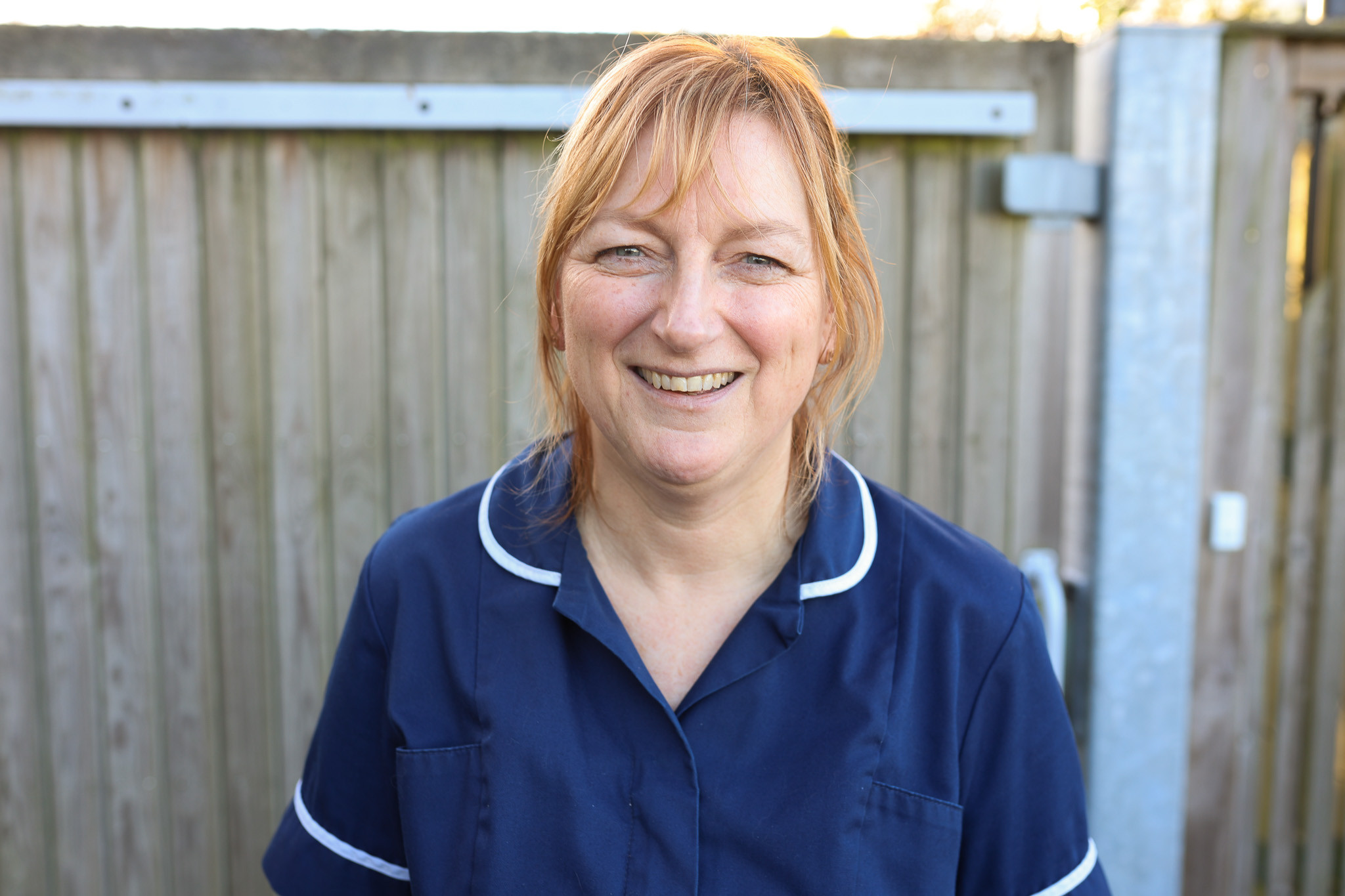
Finding the faulty genes that lead to inherited breast cancer is Suzannah’s mission
Suzannah Fitzgerald is a Macmillan breast care nurse specialist and breast cancer family history service lead based at the Kent and Canterbury Hospital.
Suzannah said: “When I first started my nursing career I trained and worked in burns and plastic surgery, this included looking after women who were having reconstructive surgery following breast cancer. I found myself drawn to these patients and helping them to adjust. I decided to change my speciality and get a degree in oncology at The Royal Marsden Hospital so I could focus on nursing both men and women with breast cancer.
“After 7 years, I moved to East Kent and became a breast cancer clinical nurse specialist. I completed a breast cancer family history course where I realised just how interesting genomics is and now I could talk about it all day! We can learn so much about cancer just from looking at the cells that form the tumour.
“It’s a really exciting career because new drugs keep coming through that target specific types of cancer and so I’m always learning. Most cancer is not inherited but we need to find families that have could have an increased risk.”
Mainstream genetic testing is not available to all NHS patients with a cancer diagnosis. You may get referred for testing depending on the type of cancer you have, or if you have a strong family history of cancer. At East Kent Hospitals we currently offer mainstream genetic testing for breast and gynaecological cancer. Patients are referred on to Guys Hospital clinical genetics if a fault is found.
Suzannah said: “There are seven genes we test for when it comes to breast cancer, and each one affects the body differently. For example, in BRCA1 and BRCA2, the faulty gene means that someone has an increased risk of breast and ovarian cancer, and so we need to not only treat their current diagnosis of breast cancer, but we need to look at how to prevent ovarian cancer. For men it can also increase their risk of prostate cancer.
“Only 5-10% of patients have inherited faulty genes; most breast cancers are sporadic. Angelina Jolie notably carries the BRCA1 gene and opted to have surgery to remove her breasts and ovaries to reduce her chances of cancer – these preventative measures are unfortunate but common for those that carry the faulty gene.
“When we have confirmed that a patient has an inherited faulty gene, we invite their family members to be tested too. It’s a very personal choice whether or not to be tested, as having the gene doesn’t necessarily mean that someone will get cancer. I completely understand how anxious patients are when they come in for their tests, and so we will have a compassionate conversation while ensuring that they have all the information they need about their next steps.
“For those patients that do have the BRCA1 or BRCA2 gene, we have set up a peer support group on www.brcakent.org.uk, we hold regular meetings, offer advice and support and even give people care packages for when they have their surgery. I’m incredibly proud of the group and how supportive they are."
Breast cancer is highly treatable if it’s caught early. Please attend your screening if you’ve been invited for one, and if you have any concerns about changes in your breasts please contact your GP. If you have a family history of breast or ovarian cancer you could discuss this with your GP and ask for a referral to the family history team. For more information about breast cancer please visit the NHS website www.nhs.uk/breast-cancer.